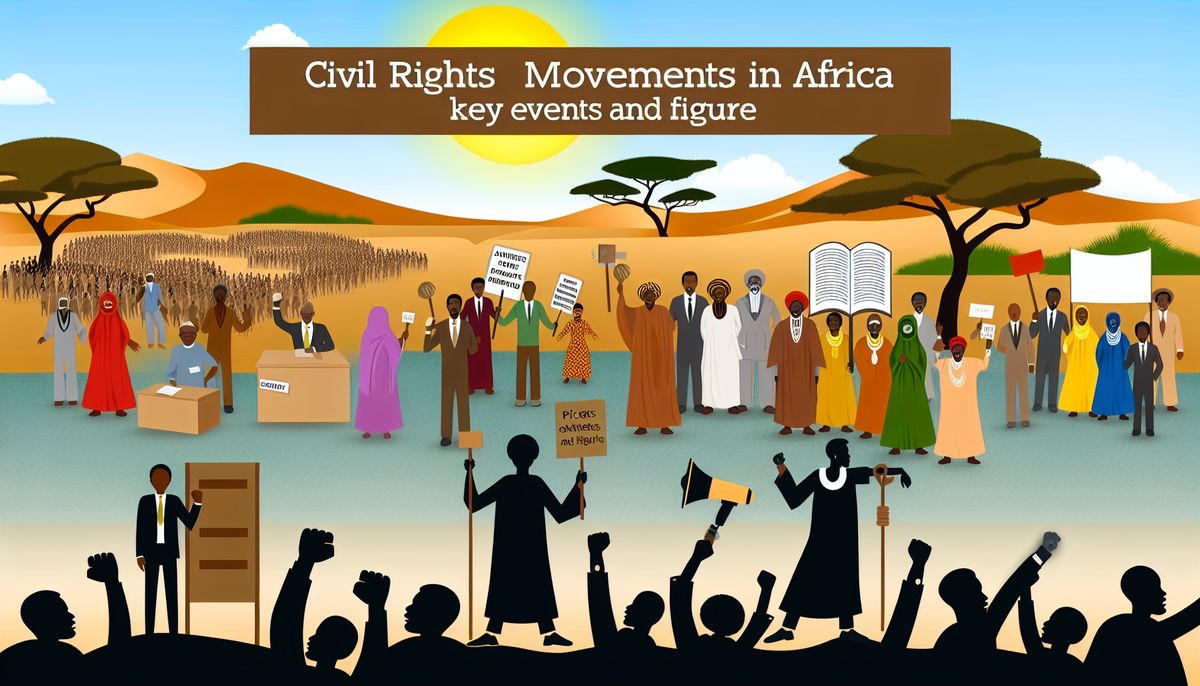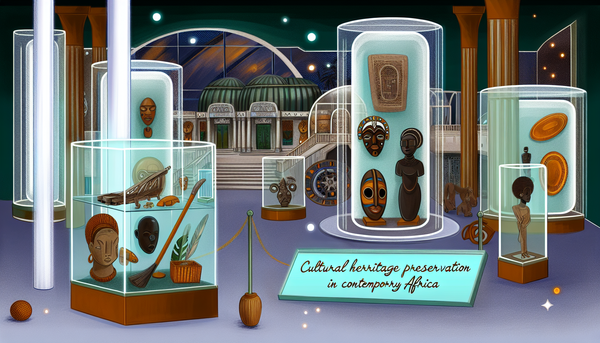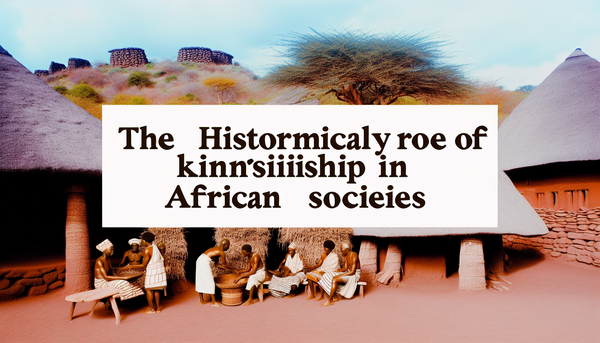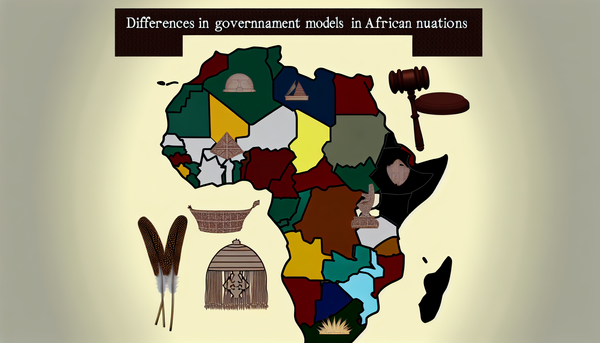Civil Rights Movements in Africa: Key Events and Figures

The rise of apartheid in South Africa marked a dark chapter in the country's history, characterized by institutionalized racial segregation and discrimination. The apartheid regime, implemented by the National Party in 1948, enforced laws that divided the population along racial lines, privileging the white minority while oppressing the black majority. This system permeated all aspects of society, from residential areas and education to job opportunities and public facilities.
In response to apartheid, resistance movements began to emerge, challenging the oppressive policies and advocating for equality and justice. The African National Congress (ANC), founded in 1912, became a prominent voice in the fight against apartheid, promoting nonviolent protest and civil disobedience. Leaders such as Nelson Mandela and Albertina Sisulu played key roles in mobilizing the masses and raising awareness about the injustices faced by black South Africans.
The resistance to apartheid grew stronger over the years, eventually leading to widespread international condemnation and sanctions against the South African government. The struggle against apartheid in South Africa serves as a powerful example of perseverance and resilience in the face of oppression.
The African National Congress (ANC) holds a pivotal role in the history of South Africa and the continent as a whole. Originally formed in 1912, the ANC aimed to unify various anti-colonial and nationalist movements, advocating for the rights and freedoms of black South Africans. Over the years, the ANC evolved into a major political force, embodying the aspirations of the oppressed people and serving as a platform for activism and resistance against apartheid.
Led by influential figures such as Nelson Mandela, Oliver Tambo, and Albertina Sisulu, the ANC played a crucial role in shaping the course of South Africa's history. Through campaigns of civil disobedience, boycotts, and international advocacy, the ANC garnered support both domestically and abroad, mobilizing a powerful movement for change. The organization's impact extended beyond South Africa, inspiring similar liberation movements across the African continent.
As a beacon of hope and resilience, the ANC remains a symbol of the struggle for justice, democracy, and equality in Africa. Its legacy continues to resonate with generations of activists and leaders committed to upholding the principles of freedom and human dignity.
Ghana's independence marked a significant milestone in Africa's decolonization process, with Kwame Nkrumah emerging as a prominent leader in the fight against colonial rule. Nkrumah's visionary leadership and strategic approach played a crucial role in Ghana's successful bid for independence in 1957, making it the first sub-Saharan African nation to break free from colonial domination.
As the founder of the Convention People's Party (CPP), Nkrumah galvanized popular support through mass mobilization and political activism, advocating for self-determination and pan-African unity. His efforts inspired a wave of independence movements across the continent, setting a precedent for African nations seeking liberation.
Nkrumah's Pan-Africanist vision emphasized the interconnectedness of African nations and the need for collective action against colonial oppression. Under his leadership, Ghana became a symbol of hope and empowerment for other African countries striving for independence.
The legacy of Kwame Nkrumah and Ghana's independence struggle serves as a testament to the resilience and determination of the African people in their quest for self-rule and sovereignty.
Nigeria's path to independence was marked by a multifaceted struggle for freedom, with key figures like Nnamdi Azikiwe playing instrumental roles in shaping the country's journey towards self-rule. Azikiwe, also known as "Zik of Africa," was a prominent nationalist leader who championed the cause of Nigerian independence through his advocacy for democratic governance and African unity.
As one of the founding fathers of modern Nigeria, Azikiwe played a pivotal role in mobilizing support for self-determination and leading the country towards independence in 1960. His unwavering commitment to social justice, education, and political empowerment inspired generations of Nigerians to strive for a better future.
Azikiwe's contributions extended beyond Nigeria, advocating for Pan-African solidarity and cooperation to advance the interests of the continent as a whole. His legacy as a statesman and visionary leader continues to resonate in Nigeria and across Africa, serving as a beacon of hope for those fighting for liberation and democratic values.
The struggle for freedom in Nigeria, propelled by figures like Nnamdi Azikiwe, remains a testament to the resilience and determination of the Nigerian people in their quest for independence and progress.
Saad Zaghloul played a pivotal role in Egypt's quest for civil liberties and independence during the early 20th century. As a nationalist leader and statesman, Zaghloul led the popular movement against British colonial rule, advocating for Egypt's sovereignty and the rights of its people. His instrumental role in the 1919 Egyptian Revolution, known as the "Revolution of 1919," marked a significant turning point in Egypt's struggle for self-governance.
Zaghloul's leadership and charisma mobilized Egyptians from all walks of life to demand political reforms and national independence. Through the establishment of the Wafd Party, he provided a platform for Egyptians to voice their aspirations and push for greater autonomy.
The legacy of Saad Zaghloul's unwavering dedication to Egypt's independence and civil liberties continues to inspire generations of Egyptians striving for democracy and social justice. His contributions to the country's history serve as a reminder of the power of collective action and the resilience of those fighting for freedom and equality in Egypt and beyond.
The Mau Mau Uprising in Kenya, which began in the early 1950s, stands as a significant chapter in the country's struggle for independence and self-determination. The movement emerged in response to British colonial rule and the injustices faced by the Kikuyu people, who sought to reclaim their land and rights from the colonizers.
The Mau Mau rebellion was characterized by acts of resistance and guerrilla warfare against the British authorities, leading to a protracted and violent conflict. The uprising represented a turning point in Kenya's history, as it exposed the harsh realities of colonial oppression and galvanized support for independence.
The consequences of the Mau Mau Uprising were profound, shaping Kenya's path towards eventual independence in 1963. The sacrifices made by Mau Mau fighters and the resilience of the Kenyan people in the face of adversity paved the way for a new era of self-governance and national pride.
The legacy of the Mau Mau Uprising continues to resonate in Kenya's collective memory, serving as a reminder of the struggles endured in the fight for freedom and justice.
Morocco and Tunisia's journeys to independence were shaped by the efforts of nationalist movements such as the Istiqlal Party in Morocco and the Neo Destour Party in Tunisia. These political organizations played key roles in mobilizing support for liberation from French and Spanish colonial rule, advocating for self-determination and the rights of their respective populations.
The Istiqlal Party, founded in 1943, emerged as a leading voice for Moroccan independence, championing the cause of sovereignty and national unity. Led by prominent figures like Allal al-Fassi and Mehdi Ben Barka, the Istiqlal Party mobilized mass support and resistance against colonial authorities, ultimately contributing to Morocco's independence in 1956.
Similarly, the Neo Destour Party, founded in 1934 by Habib Bourguiba, spearheaded Tunisia's struggle for liberation from French occupation. Through non-violent resistance and diplomatic efforts, the Neo Destour Party successfully negotiated Tunisia's independence in 1956, marking a triumph for the Tunisian people.
The influence of the Istiqlal and Neo Destour parties in Morocco and Tunisia's paths to independence underscores the power of organized political movements in securing freedom and self-rule for African nations. Their legacies continue to resonate in the post-colonial landscape of the Maghreb region, inspiring a sense of national pride and unity among Moroccans and Tunisians alike.



